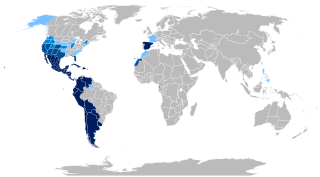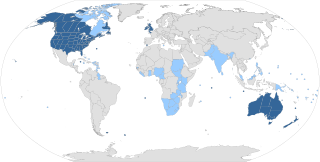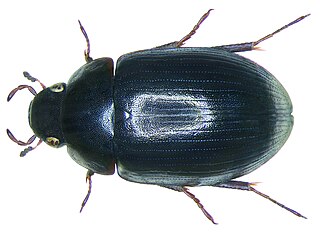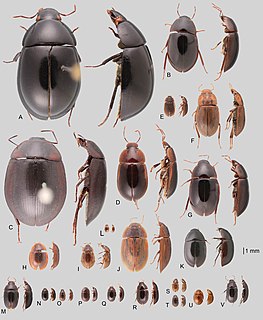
Albania, officially the Republic of Albania, is a country in Southeastern Europe. It is located on the Adriatic and Ionian Seas within the Mediterranean Sea and shares land borders with Montenegro to the northwest, Kosovo to the northeast, North Macedonia to the east and Greece to the south. Tirana is its capital and largest city, followed by Durrës, Vlorë, and Shkodër.

Germany, formally the Federal Republic of Germany, is a country in Central Europe. It is the second most populous country in Europe after Russia, and the most populous member state of the European Union. Germany is situated between the Baltic and North seas to the north, and the Alps to the south; it covers an area of 357,022 square kilometres (137,847 sq mi), with a population of over 83 million within its 16 constituent states. Germany borders Denmark to the north, Poland and the Czech Republic to the east, Austria and Switzerland to the south and France, Luxembourg, Belgium and the Netherlands to the west. The nation's capital and largest city is Berlin and its financial centre is Frankfurt; the largest urban area is the Ruhr.

Indonesia, officially the Republic of Indonesia, is a country in Southeast Asia and Oceania between the Indian and Pacific oceans. It consists of over 17,000 islands, including Sumatra, Java, Sulawesi, and parts of Borneo and New Guinea. Indonesia is the world's largest island country and the 14th-largest country by area, at 1,904,569 square kilometres. With over 270 million people, Indonesia is the world's fourth-most populous country and the most populous Muslim-majority country. Java, the world's most populous island, is home to more than half of the country's population.

The Philippines, officially the Republic of the Philippines, is an archipelagic country in Southeast Asia. It is situated in the western Pacific Ocean and consists of around 7,641 islands that are broadly categorized under three main geographical divisions from north to south: Luzon, Visayas, and Mindanao. The Philippines is bounded by the South China Sea to the west, the Philippine Sea to the east, and the Celebes Sea to the southwest. It shares maritime borders with Taiwan to the north, Japan to the northeast, Palau to the east and southeast, Indonesia to the south, Malaysia to the southwest, Vietnam to the west, and China to the northwest. The Philippines covers an area of 300,000 km2 (120,000 sq mi) and, as of 2021, it had a population of around 109 million people, making it the world's thirteenth-most populous country. The Philippines has diverse ethnicities and cultures throughout its islands. Manila is the country's capital, while the largest city is Quezon City; both lie within the urban area of Metro Manila.

Spanish is a Romance language of the Indo-European language family that evolved from colloquial spoken Latin in the Iberian Peninsula of Europe. Today, it is a global language with nearly 500 million native speakers, mainly in the Americas and Spain. Spanish is the official language of 20 countries. It is the world's second-most spoken native language after Mandarin Chinese; the world's fourth-most spoken language overall after English, Mandarin Chinese, and Hindustani (Hindi-Urdu); and the world's most widely spoken Romance language. The largest population of native speakers is in Mexico.

The United Kingdom of Great Britain and Northern Ireland, commonly known as the United Kingdom (UK) or Britain, is a sovereign country in Europe, off the north-western coast of the continental mainland. It comprises England, Wales, Scotland, and Northern Ireland. The United Kingdom includes the island of Great Britain, the north-eastern part of the island of Ireland, and many smaller islands within the British Isles. Northern Ireland shares a land border with the Republic of Ireland; otherwise, the United Kingdom is surrounded by the Atlantic Ocean, the North Sea, the English Channel, the Celtic Sea and the Irish Sea. The total area of the United Kingdom is 93,628 square miles (242,500 km2), with an estimated 2020 population of more than 67 million people.

The United States of America, commonly known as the United States or America, is a country primarily located in North America. It consists of 50 states, a federal district, five major unincorporated territories, 326 Indian reservations, and nine minor outlying islands. It is the world's third-largest country by both land and total area. The United States shares land borders with Canada to the north and with Mexico to the south as well as maritime borders with the Bahamas, Cuba, and Russia, among others. With more than 331 million people, it is the third most populous country in the world. The national capital is Washington, D.C., and the most populous city and financial center is New York City.

Contemporary climate change includes both global warming and its impacts on Earth's weather patterns. There have been previous periods of climate change, but the current changes are distinctly more rapid and not due to natural causes. Instead, they are caused by the emission of greenhouse gases, mostly carbon dioxide and methane. Burning fossil fuels for energy use creates most of these emissions. Certain agricultural practices, industrial processes, and forest loss are additional sources. Greenhouse gases are transparent to sunlight, allowing it through to heat the Earth's surface. When the Earth emits that heat as infrared radiation the gases absorb it, trapping the heat near the Earth's surface. As the planet heats up it causes changes like the loss of sunlight-reflecting snow cover, amplifying global warming.

English is a West Germanic language of the Indo-European language family, originally spoken by the inhabitants of early medieval England. It is named after the Angles, one of the ancient Germanic peoples that migrated from Anglia, a peninsula on the Baltic Sea, to the area of Great Britain later named after them: England. The closest living relatives of English include Scots, followed by the Low Saxon and Frisian languages. While English is genealogically West Germanic, its vocabulary is also distinctively influenced by Old Norman French and Latin, as well as by Old Norse. Speakers of English are called Anglophones.

Islamic State (IS), also known as the Islamic State of Iraq and the Levant, Islamic State of Iraq and Syria, and by its Arabic acronym Daesh, is a militant Islamist group and former unrecognized quasi-state that follows the Salafi jihadist branch of Sunni Islam. It was founded by Abu Musab al-Zarqawi in 1999 and gained global prominence in 2014, when it drove Iraqi security forces out of key cities during the Anbar campaign, which was followed by its capture of Mosul and the Sinjar massacre.

Hydrobius is a genus of hydrophilid beetles that contains nine species distributed throughout the Holarctic realm.

Hydrobius fuscipes is a species of beetles in the family Hydrophilidae that is found across much of the temperate Northern Hemisphere.

On 26 March 2015, Saudi Arabia, leading a coalition of nine countries from West Asia and North Africa, launched an intervention in the Yemeni Civil War in response to calls from the president of Yemen Abdrabbuh Mansur Hadi for military support after he was ousted by the Houthi movement. The conflict ignited between the government forces, the Houthi rebels and other armed groups after the draft constitution and power-sharing arrangements collapsed, despite progress in the political transition led by the United Nations at that time, leading to an escalation of violence in mid-2014. The Houthis and allied units of the armed forces seized control of Sana’a and other parts of the country in September 2014 and in the following months. This prompted President Hadi to ask Saudi Arabia to intervene against the Iranian-backed Houthis.

Acidocerinae is a subfamily in the family Hydrophilidae of aquatic beetles, and it contains over 500 species in 23 genera.
Brownephilus is a genus of water scavenger beetles in the family Hydrophilidae containing two described species. Brownephilus was formerly a subgenus of Hydrobiomorpha and was elevated to genus by Andrew E.Z. Short in 2010.
Protistolophus spangleri is a species of water scavenger beetles in the family Hydrophilidae and the only species in the genus Protistolophus. Protistolophus spangleri was described as a new species and genus by Andrew E.Z. Short in 2010. The species is known only from Venezuela.

Globulosis is a Neotropical genus of water scavenger beetle in the family Hydrophilidae represented by two described species known from the Guiana Shield Region.














